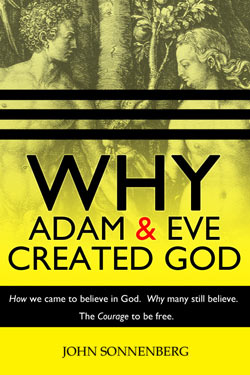Chapter 19 – Silly Mind Tricks
We are not always right. There are times when our minds play tricks on us, causing what some call “a religious experience”. We can be certain something happened, but yet it never did. We know what we saw, but yet we find out it really wasn’t quite like we remembered. We tend to place a lot of weight on “eye witness” accounts, but time and again it is proven that eye-witnesses are often very wrong. False memories, delusions, and hallucinations can cloud our recollections. Most of the time, these have little direct impact on our lives. They annoy us when we can’t remember something correctly and startle us as we fall asleep, but for the most part, they are harmless. Other times, the consequences of these experiences are a bit more troubling. For example, Ronald Reagan, while he was President of the United States, sometimes had difficulty in differentiating reality from memories of films in which he had acted.
This is only a short summary of this fascinating topic. To find out more, please get Why Adam and Eve Created God.
Silly mind tricks are part of being human. They can be silly, embarrassing, or dangerous. Find out why we all experience them, and how they have been used by religions the world around to trick people into thinking God had something to do with their life. Briefly, here is a list of silly mind tricks that most all people experience. Read more about the here. These are normal parts of being human, and make many people think that God is contacting them:
- Auditory Hallucination (Hearing Voices). Sometimes this happens as we are falling asleep or awakening. Sometimes when a loved one passes away, we’ll hear their voice as if they were in the room.
- Visual Hallucination (Hearing Voices). Again, sometimes this happens as we are falling asleep or awakening. Visual hallucinations are less common than auditory ones, but they do happen to many people.
- False Memories. When our brain recalls a past event, the memory it brings up can be inaccurate, exaggerated, and missing information. Our mind may have filled in some missing gaps on its own or a memory mayhave been implanted there by someone else.
